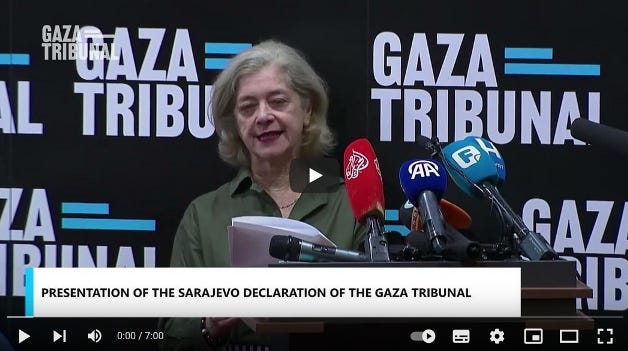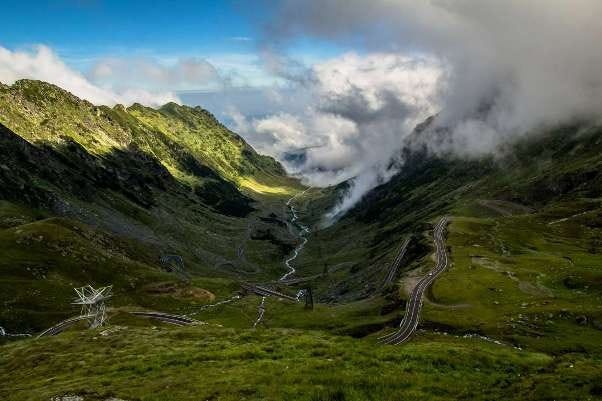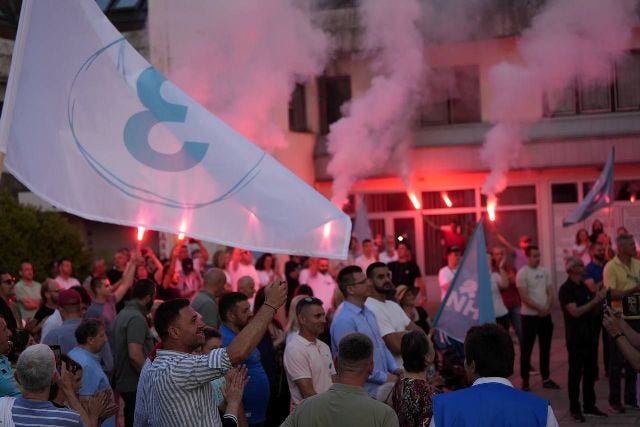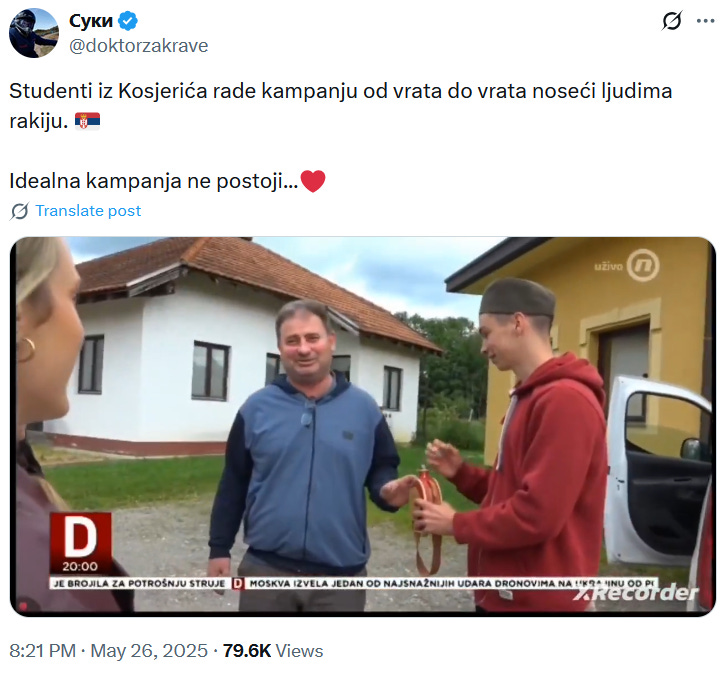The road goes ever on
One of the most stunning highways in the Balkans, big elections in small places, Croatia's compulsory military service. Also: why the Vatican never recognized Kosovo, and rakija-serving robots.
Good morning, everyone!
Welcome back! This is Balkan Brew - your weekly dose of all things Balkan. Looks like summer’s finally here, but let’s not get too distracted by the sunshine. There's a lot to unpack, so let’s dive in.
But first, Eid Mubarak or sretan Bajram to all who celebrate!

In this issue: we’re heading to one of the most stunning highways in the Balkans as it reopens, covering big elections in small places, and taking a look at Croatia’s move to bring back compulsory military service. Also: why the Vatican never recognized Kosovo, and yes! Rakija-serving robots.
LIKE BALKAN BREW? Help us grow! Share the love by forwarding this email to anyone who might be interested. And if you just got this email forwarded to you - why not subscribe? Just hit the button right here 👇
The road goes ever on
OPEN FOR BUSINESS. The most stunning part of the Transfăgărășan Highway in Romania reopens today.
This highway is often called one of the most spectacular roads in the region, drawing in thousands of travelers every year. But the stretch between Bâlea Cascada and Piscul Negru sits at a high altitude, so it’s closed during the winter months.

STRATEGY. The highway was built under Romania’s communist dictator Nicolae Ceaușescu, who feared a Soviet invasion. It was designed to quickly move troops to defend the country’s north.
A MONUMENTAL TASK #1. The soldiers who built it had to deal with freezing temps, harsh conditions, and even wild animals - bears are still a pretty common sight up there.
A MONUMENTAL TASK #2. Meanwhile, the pace of highway construction in Bosnia and Herzegovina is... well, classic. Work on the highway between Sarajevo and Belgrade began years ago, but progress has been painfully slow.
Small town showdown
Local elections are happening this Sunday in two relatively small towns in Serbia. Don’t let their size fool you - they are a big deal.
60k. Zajećar (about 48,000 people) and Kosjerić (around 10,000) aren’t exactly used to being in the spotlight. According to Wikipedia, the most notable thing about them is Gitarijada, Serbia’s longest-running music festival (yeah, we hadn’t heard of it either).
BUT. The elections on Sunday, June 8, will be the first in Serbia since the tragic canopy collapse in Novi Sad on November 1, which killed 16 people.

A TEST. The ruling SNS party, led by President Aleksandar Vučić, has held power in both cities for over a decade. But after seven months of massive anti-government protests, they really need a win here.
STUDENTS. It’s also a test for the student-led protest movement. Beyond general frustration with the government, the big question is: are people ready to back something more serious and lasting?
UNITED. In Kosjerić, the opposition has answered the students’ call - they’re running together under the name Unified for Kosjerić.

CARROT... The ruling SNS party is going all-in to swing the vote: 90 appearances by government officials in just these two towns during the campaign, plus a flurry of last-minute road construction.
...AND STICK. Meanwhile, the Center for Research, Transparency and Accountability reported 71 incidents - including threats, violence, and intimidation - against opposition activists, journalists, and regular citizens in just the final three weeks of the campaign.
I want you
On June 4, Croatia’s Defense Minister Ivan Anušić officially rolled out the plan to bring back compulsory military service, which was scrapped back in 2008.
THE DETAILS. The draft says military service will be mandatory for all men aged 18 to 30. New conscripts will go through two months of training and get paid €1,100 per month, plus free meals and transport.
OBJECTIONS. Those who don’t want to serve in the military can opt for civil protection service instead.
TIMETABLE. The legal changes needed are expected to pass soon, and if all goes to plan, the first group could be called up by the end of the year. The government says they’re expecting around 4,000 conscripts annually.
BIG MONEY. Croatian authorities are planning to boost their military spending to 3 per cent of the GDP by 2030.
IN OTHER NEWS.
The Transbalkans gas route - running through Greece, Bulgaria, Romania, and Moldova - used to carry Russian gas to the EU. It’s reopening this June, but this time it'll bring EU gas to Ukraine.
Has he been arrested? Nope. And this time, Milorad Dodik is in Hungary.
Since the fall of Bashar al-Assad’s regime, around 250,000 Syrians living in Turkey have returned home.
Special security measures are in place ahead of the June 7 football match between Serbia and Albania. The last one, back in 2014, got cut short after a drone flew in with a “Greater Albania” flag. Yep, that happened.
AND FINALLY. You might not know it, but the Vatican is one of the states that still doesn’t recognize Kosovo.
Why? Well, it’s complicated, says the head of Kosovo’s Special Mission to the Holy See. You can find out more here.
Innovation alert: the Serbian municipality of Surčin, near Belgrade Airport, now has a rakija-serving robot. Accelerationism at its finest.
BACKPACKERS, BE READY. Starting June 20, Slovenian Railways is launching a new direct train route between Ljubljana, Pula, and Zagreb. It’ll be the first direct connection between the three cities in over 30 years.
Aaaaand that’s a wrap. Quite the week, huh? Sometimes it’s tough to stay on top of everything, but we do it for the love of curiosity - and because we promised we would.
If we missed something, made a mistake, or if you’ve got advice or feedback, just hit reply. We’d love to hear from you.
Enjoy your weekend, and see you next week - same time, same place.
BB











